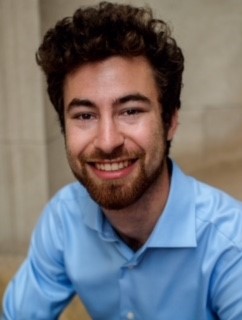Please enjoy a d’var Torah this week by Rosh Garinim and Halutzim 2018 Avidan Halivni. 2018 was Avidan’s eleventh summer at camp, and his fourth on staff! Originally from Deerfield, Illinois, Avidan is a senior at Columbia University where he is majoring in Religion.
Of the Outdoors or In the Tents: Reflections on Parashat Tol’dot
by Avidan Halivni
Our parashah this week, Tol’dot, opens with the dramatic birth of Jacob and Esau, two brothers whose differences would define their relationships with their parents and with each other. Already during her pregnancy, their mother Rebekah is warned by God that she is carrying the forebears of two great nations in her womb, setting the stage for the inevitable divergence in character as the budding leaders strive to establish their own identities. As the boys mature, the narrative points out how the two have already delineated their respective domains:
וַֽיִּגְדְּלוּ֙ הַנְּעָרִ֔ים וַיְהִ֣י עֵשָׂ֗ו אִ֛ישׁ יֹדֵ֥עַ צַ֖יִד אִ֣ישׁ שָׂדֶ֑ה וְיַעֲקֹב֙ אִ֣ישׁ תָּ֔ם יֹשֵׁ֖ב אֹהָלִֽים׃
Vayigd’lu han’arim vay’hi eisav ish yodei’a tzayid ish sadeh, v’ya’akov ish tam yosheiv ohalim.
When the boys grew up, Esau became a skillful hunter, a man of the outdoors; and Jacob was a quiet man, dwelling in tents. (Genesis 25:27)
The archetypes laid out here are not unfamiliar to those of us who have grown up in camp. Camp is equally populated with chanichim (campers) who thrive in the high-paced energy of all of Ramah’s outdoor settings — on the sports courts, on the ropes course, and in the agam (lake) — as it with those who shine “in the tent,” as it were, i.e. in the intimate setting of the tzrif (cabin), in conversations on Shabbat and late at night, or curled up with a good book on the kikar (central field). The dichotomy that the description of Jacob and Esau presumes, of course, is deceptive: each of us, at one point or another during the summer, is both of these figures. A summer at Ramah is incomplete unless it pushes us in all these ways, challenging us to strengthen our outdoor camping skills while presenting new and complex ideas to sharpen our tent-based thinking — and often at the same time!
In its presentation of these two characters, the parashah also offers several templates for the basis on which relationships are formed, holding as true at camp in 2018 as it did in ancient times. The text speaks to the love Rebekah and Isaac have for their precocious children, each in their own way:
וַיֶּאֱהַ֥ב יִצְחָ֛ק אֶת־עֵשָׂ֖ו כִּי־צַ֣יִד בְּפִ֑יו וְרִבְקָ֖ה אֹהֶ֥בֶת אֶֽת־יַעֲקֹֽב׃
Vaye’ehav Yitzchak et eisav ki tzayid b’feev, v’rivkah ohevet et ya’akov.
Now Isaac loved Esau, because he had a taste for game; and Rebekah loved Jacob. (Genesis 25:28)
We see in this verse two models of the foundation of a loving relationship. The first, that of Isaac, is a connection on the basis of shared interests and of similar likes and dislikes (“tastes”). Isaac identifies strongly with Esau, whose behavior finds favor in his eyes, perhaps even seeing in him a bit of himself. On the other hand, we have the unattributed love of Rebekah for Jacob. This is the unconditional love of a parent for a child, the inexplicable attraction of one person to another: must we pinpoint the rational basis for every relationship as a condition for recognizing its validity?
As a rosh aidah (division head) last summer, I watched with pride as my staff and campers took full advantage of both models the parashah describes. Group sports games, musicals in Hebrew, and awesome peulot (activities) provided a shared language for my young chanichim (campers) to bond over. I saw first-time counselors take both eager and shy kids under their wing, teaching them the same songs and games they enjoyed when they were younger and delighting in getting them to fall in love with camp as they had. Camp uncovers a shared love for this or that activity among peers and in mentors only a few years older, and enables them to enjoy it together every day.
At the same time, I also witnessed — and have witnessed many times over my eleven summers at camp — strong friendships blossom between people who wouldn’t be expected to get along. Brought together by nothing more than a bunk assignment or an empty seat in the chadar ochel (dining hall), inexplicable relationships between campers from all walks of life form every day at camp. Over the course of a summer, camp friends come to trust and love each other with the same matter-of-factness with which the Torah describes Rebekah as loving Jacob. The fun and intimate nature of camp is all the fodder one needs to develop a deep and lasting relationship, fostered in a place where anything is possible.
Both models, handed down to us from our parashah, exist side-by-side at camp, making camp the magical space it is. I am grateful for the existence of a setting unlike any other, where deep and meaningful relationships are as common on the outdoor sports courts as they are in the cabins, where people both alike and unique meet each other in an atmosphere conducive to making friends that will last for years.
P.S. I can no longer read the first few verses of this parashah without remembering the performance of our veteran senior staff member Jon Adam Ross (JAR)’s “Rebekah Play,” which I had the fortune of seeing live during my third summer on staff in 2016. It taught me to reflect on the roles we in everyday life (utilizing a nifty technique of role reversal), especially in our relationships with those outside our natural communities. This play is highly recommended; Kol HaKavod JAR! For more about the Rebekah Play and other projects, see the website for JAR’s amazing In[HEIR]itance Project.






